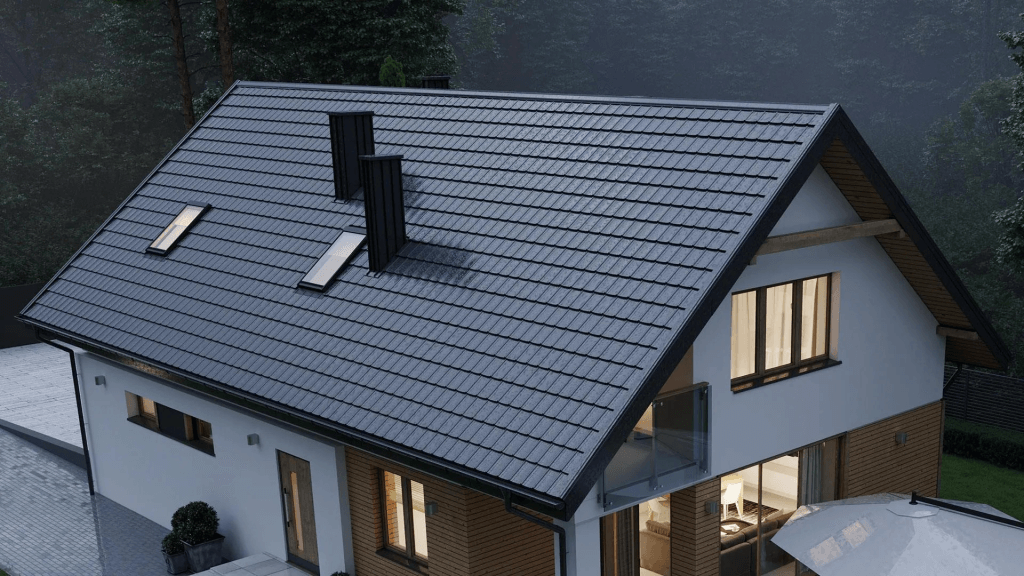How to Choose the Perfect Roofing: Tips and Tricks
The roof is one of the most important elements of your home, protecting you from wind, rain, snow, and sun. The right roofing material not only protects your property, but also provides aesthetic appeal, increases energy efficiency, and adds long-term value to your home. However, with so many roofing options on the market, choosing the right one can be challenging. In this article, we’ll provide tips and tricks to help you make an informed decision.
1. Determine Your Budget:
Before you start looking for roofing, determine how much you can afford to spend. Roofing costs vary depending on the material, installation complexity, and region. Consider not only the cost of the materials, but also the installation, removal, disposal, additional construction (if needed), and long-term maintenance expenses.
2. Assess Your Roof Slope:
The roof slope is the angle between the roof surface and a horizontal line. Different types of roofing are suitable for different slopes. For example, flat roofs are not suitable for tiles, and steep roofs are not suitable for rolled roofing. Before choosing a roofing material, consult with a roofing specialist to ensure that the chosen material is appropriate for your roof slope.
3. Consider Climate Conditions:
The climate conditions in your region will greatly influence your roofing choice. If you live in an area with strong winds, choose a roofing material that is wind-resistant, such as metal roofing or specialized tiles. If you live in an area with heavy snowfall, choose a roofing material that can withstand heavy snow loads. If you live in a hot climate, choose a roofing material that reflects sunlight and reduces building heat gain, such as light-colored tiles or metal roofing with special coatings.
4. Evaluate the Building’s Architectural Style:
The roofing should match the architectural style of your home. For example, a traditional home will suit tiles or slate, while a modern home will suit metal roofing. It is important to choose a roofing material that not only protects your home, but also complements its aesthetic appeal.
5. Consider Energy Efficiency:
Some roofing materials are more energy efficient than others. Roofing that reflects sunlight can reduce building heat gain and lower energy costs for cooling. You can also choose roofing with a good thermal insulation coefficient to reduce energy costs for heating.
6. Consider the Weight of the Roofing:
The weight of the roofing affects the roof structure. Heavier roofing materials, such as tiles, may require a stronger roof structure. Before choosing a roofing material, ensure that your roof structure can support the weight of the chosen material.
7. Choose a Reputable Manufacturer and Installer:
The quality of the roofing depends not only on the material, but also on the installation. Choose a reputable roofing manufacturer that offers warranties. It is also crucial to choose a reliable and qualified installer who will properly install the roofing. Contact several companies, request quotes, and check their reviews.
8. Compare Roofing Types:
Here is a brief description of the main types of roofing:
-
Asphalt shingles: This is the most popular and economical choice. They are available in a variety of colors and styles.
-
Clay tiles: Durable, fire-resistant, and give the house a classic look.
-
Concrete tiles: Similar to clay tiles, but made of concrete.
-
Slate tiles: One of the most expensive, but also the most durable roofing options.
-
Metal roofs: Lightweight, fire-resistant, wind-resistant, and corrosion-resistant. They can be steel, aluminum, or copper.
-
Wood roofs: Beautiful, but require more maintenance and are less fire-resistant.
9. Consult with Experts:
If you are unsure which roofing material is right for you, consult with an experienced roofing specialist. They will be able to assess your home, consider your needs and budget, and recommend the most suitable roofing material.
Conclusion:
Choosing roofing is an important decision that will affect the safety, comfort, and value of your home. Carefully consider all of the above factors, compare different options, and consult with experts so that you can make an informed decision and choose the perfect roofing for your home.

